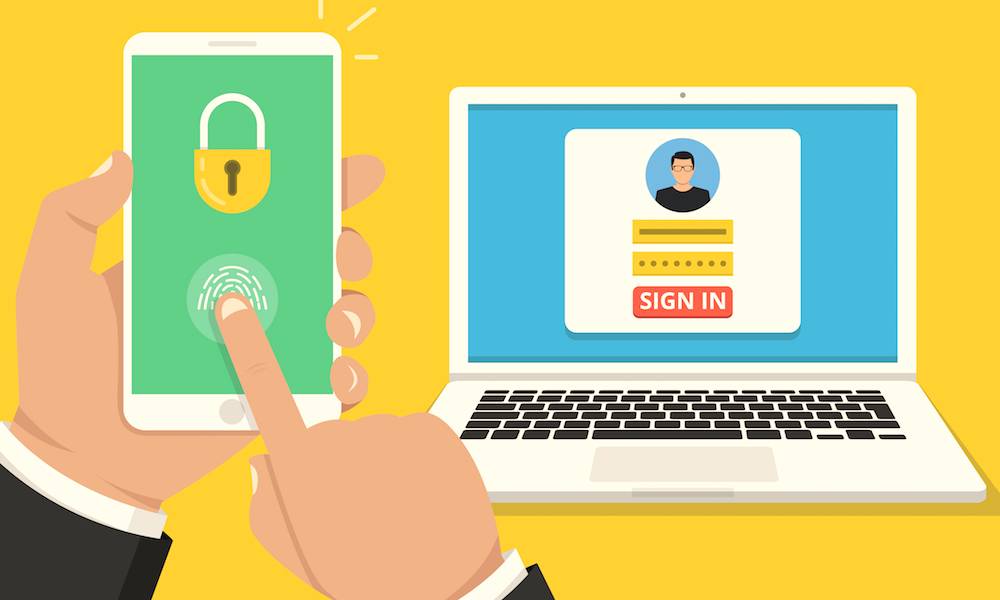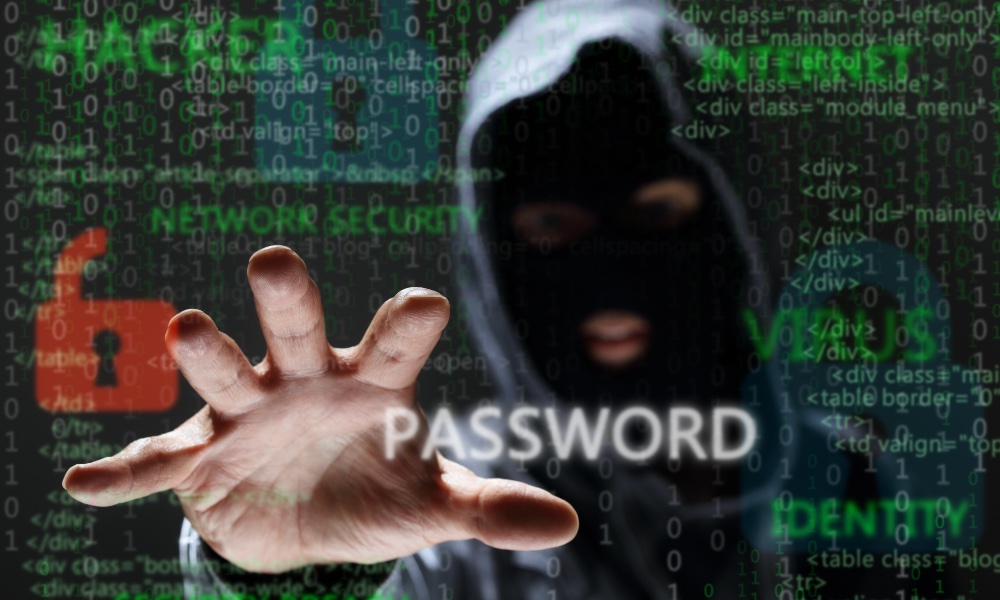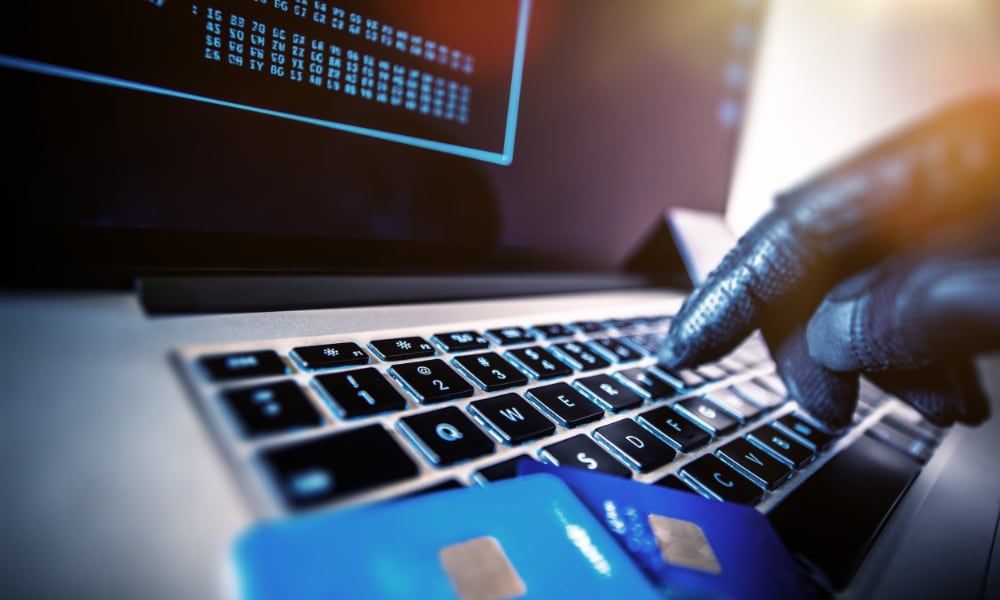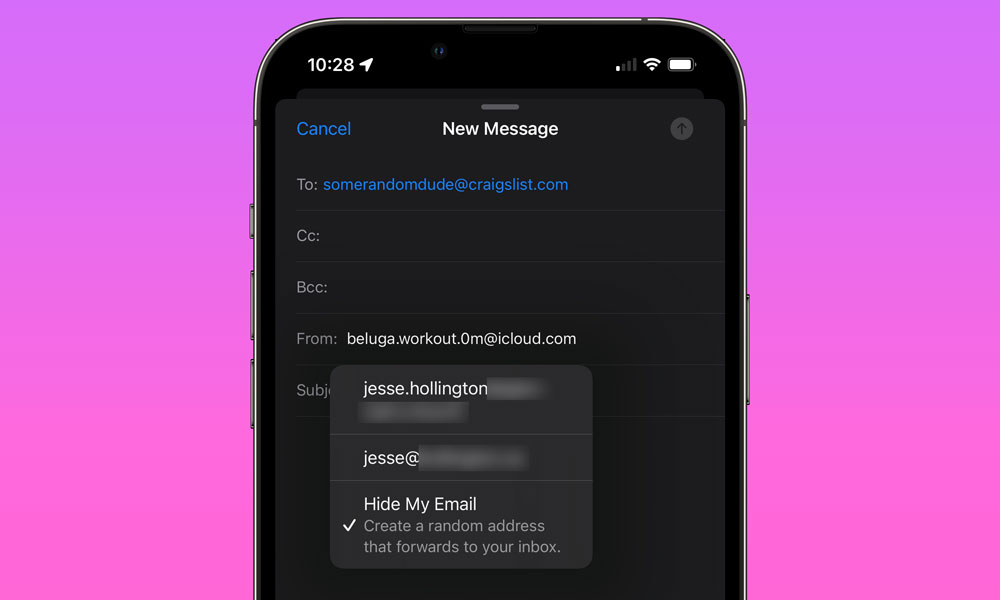7 Things Hackers Can Do If They Get Their Hands on Your Email Address
 Credit: Sergey Nivens / Shutterstock
Credit: Sergey Nivens / Shutterstock
In the online world, your email address is your core identity. Using an email address lets you access all your online accounts, manage your financial transactions, keep your information safe, and many other things.
There's no doubt that your email address is significant. After all, why else would scammers want to get their hands on it? So it's important that you don't give your email address out to just anyone.
The truth is that any cybercriminal can do quite a bit with your email address if they get a hold of it, including bringing harm to you or your loved ones. Don't believe it? Read on for 7 ways that scammers can exploit your email address.
Scammers Can Try to Access Your Other Accounts
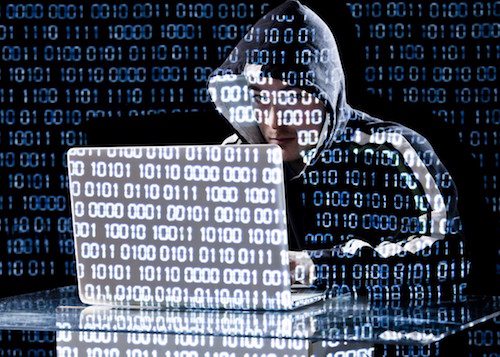
Once someone has access to your email address, it becomes much easier to try to access any other online platforms and services you've signed up for.
If you use the same email address for all your accounts, hackers can try to crack your passwords for other platforms, which is even easier if you're also using the same password in more than one place.
Imagine someone having access to all your social media, your bank accounts, and other sensitive accounts you don't want people to know about. Once a bad actor has your email address, they've already made it halfway to getting into everything else.
They Can Exploit Two-Factor Authentication
Two-factor authentication offers an extra layer of protection that helps prevent others from getting into your online accounts, but what happens when someone can exploit this feature?
Suppose an online platform sends the two-factor code to your email address to verify your identity. In that case, anyone with access to your email account can easily crack the two-factor authentication feature. Even if you use SMS or an authenticator app for your two-factor code, requests for password resets usually go to your email address, and in some cases that also includes requests to disable two-factor authentication entirely.
This goes hand in hand with our previous point — one a hacker gets into your email account, they'll have no problems accessing all your other online accounts.
Scammers Can Collect All Your Data
We all have lots of private information in our email accounts. Whether it's media, private emails, or financial data, there's a lot in there that you probably don't want other people looking at — especially random cybercriminals.
If someone can access all that information, they'll almost certainly find a way to use it for evil purposes. That could be as simple as selling email addresses to third-parties or it could be using that information to harm you in some way. Either way, it's best to avoid these problems from the get-go.
They Can Try to Scam Your Friends and Family
A popular way for scammers to get people's sensitive information is a technique called phishing. This basically means that a scammer impersonates someone else to try to get people to offer up their personal data or even open their wallets.
If someone can send emails from your account, your friends and family would have no reason to believe you're not the one who sent the email. Normal spam filters also won't apply here if the message really did come from your email account. This means they may be willing to divulge sensitive information that they wouldn't otherwise give to a stranger.
A scammer may even try to extort money out of those closest to you by impersonating you and claiming that they're in trouble and need immediate help.
Not only can that put your friends and family at risk, but the scammers might also get a hold of their email accounts too, spreading the problem even further.
Scammers Can Blackmail You
It's a simple but effective trick for someone to blackmail you once they have access to your email account. If scammers have all your private information stored somewhere, it's trivial for them to either threaten to disclose that information, or even just hold it hostage for a ransom payment.
A long time ago, I witnessed someone get an email in which a scammer demanded thousands of dollars in Bitcoin by threatening to reveal sensitive information to their friends and family.
Fortunately, the scammer didn't really have any sensitive information, but they did have the person's email address and password, which was more than enough to send a threat like this one — and scare someone into taking it seriously.
You Could Be Locked Out of Your Own Accounts
Whether it's just your email account or all your other online accounts, if a cybercriminal gets a hold of your password and email address, you could lose access to your whole digital life in a flash.
If scammers manage to reset your passwords on all the platforms they can, you'll immediately lose access to everything. We're not talking about just social media platforms, but even things like bank and brokerage accounts, and of course your own email address.
Not only would you lose access to your online accounts, but they'd be able to impersonate you.
Plus, if they can use this to get access to your Apple ID, then they can also remotely wipe all your devices — and erase your iCloud backups too. That may sound farfetched, but it's been done before. Your entire digital existence could be wiped out in a heartbeat.
Your Reputation Might Be Ruined
Let's say it's not a scammer who has your email address, but rather someone who has a grudge against you. They probably won't want to do much more than find a way to harm you and your reputation.
Whether that's sending inappropriate emails to your coworkers or revealing private information to your friends and family, there are a lot of ways for someone to use your email address to ruin your reputation, relationships, and even your work life.
How to Avoid All These Problems
There are actually many ways to avoid getting hacked or scammed without too much trouble or effort, but here are some general recommendations:
- First, stop giving your email address away too easily. Whether it's online or in real life, try to give your address to only people you know can be trusted. If you want to take it to the next level, you can also use different email addresses for different platforms. That way, your private email address will be safe, and you can tell people your public email address without worrying too much.
- Strengthen your passwords. Use different passwords for different online platforms, and try to make them as complicated as possible. Try using upper case, lower case numbers, and symbols in your passwords. I know it can be hard to remember longer passwords, but there are some great password managers that will keep all your passwords secured in one place — and some of them even help you use random email addresses too.
- Do you want to be more secure? Start using two-factor authentication. It'd be best if you set it up to receive your code on your personal phone, so no one but you will have access to it, but avoid using SMS if you can, as that's vulnerable to a SIM-swapping attack. Use an authenticator app that generates the codes on your device, or better yet, consider a physical security key for your really sensitive accounts. Popular email services like Gmail and Fastmail not only offer support for these affordable security tokens, but they'll even work with your iPhone and iPad.
- Last but not least, avoid shady websites. Sometimes, one click is all it takes for someone to get your email address and password on one of those sites.
While there's no perfect way to completely protect yourself against cybercriminals, the above steps will help. They may always find new ways to try to attack people, but that doesn't mean you should make it easier for them.

